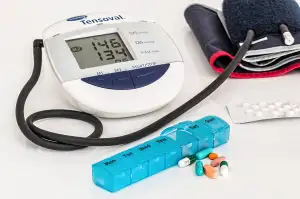Unveiling the Nutritional Value of Pretzels: Are They Truly Healthy?

- Understanding the Ingredients: What Makes Up a Pretzel?
- Calorie Content: How Many Calories Do Pretzels Contain?
- Fat Content: Are Pretzels Low in Fat?
- Sodium Levels: Examining the Salt Content in Pretzels
- Fiber Content: Do Pretzels Provide a Good Source of Fiber?
- Protein Content: How Much Protein Do Pretzels Offer?
- Micronutrients: Exploring the Vitamin and Mineral Content of Pretzels
- Health Benefits: Are There Any Positive Effects of Eating Pretzels?
Pretzels are a popular snack enjoyed by many, but have you ever wondered about their nutritional value? In this article, we will delve into the ingredients that make up a pretzel and examine its calorie, fat, sodium, fiber, protein, and micronutrient content. By understanding the nutritional composition of pretzels, we can make informed decisions about including them in our diet. So let's unravel the mysteries behind these twisted treats and discover if they truly offer any health benefits.
Understanding the Ingredients: What Makes Up a Pretzel?
Pretzels are made from a simple combination of flour, water, yeast, and salt. The dough is typically shaped into a twisted knot or loop before being baked to perfection. Some variations may also include additional ingredients such as sugar, butter, or spices for added flavor. The use of yeast helps in the leavening process, giving pretzels their characteristic texture. Overall, the ingredients used in pretzels are relatively basic and straightforward, making them a popular snack choice for many.
Calorie Content: How Many Calories Do Pretzels Contain?
Pretzels are a popular snack, but how many calories do they actually contain? On average, a one-ounce serving of pretzels contains around 110-120 calories. This may vary depending on the brand and type of pretzel. While pretzels are not considered high in calories compared to other snacks, it's important to be mindful of portion sizes to avoid overindulging. Moderation is key when it comes to enjoying pretzels as part of a balanced diet.
Fat Content: Are Pretzels Low in Fat?
When it comes to the fat content of pretzels, the answer is yes and no. Traditional pretzels are typically low in fat, as they are made with simple ingredients like flour, water, yeast, and salt. However, some variations of pretzels, such as those coated with cheese or other toppings, can be higher in fat.
On average, a plain pretzel contains about 1-2 grams of fat per serving. This makes them a relatively low-fat snack option compared to other popular snacks like chips or cookies. However, it's important to note that the fat content may vary depending on the brand and preparation method.
It's also worth mentioning that the type of fat found in pretzels is mainly unsaturated fat, which is considered healthier than saturated fat. Unsaturated fats have been linked to various health benefits, including improved heart health and reduced inflammation.
In conclusion, while traditional pretzels can be considered low in fat, it's essential to be mindful of any additional toppings or coatings that may increase their fat content. As with any food, moderation is key when incorporating pretzels into a balanced diet.
Sodium Levels: Examining the Salt Content in Pretzels
One aspect of pretzels that often raises concern is their sodium levels. Pretzels are known for their salty taste, but just how much salt do they contain? On average, a serving of pretzels can contain around 200-300 milligrams of sodium. This may not seem like much, but it's important to consider portion sizes. Many people tend to consume more than one serving at a time, which can quickly add up the sodium intake. Excessive sodium consumption has been linked to high blood pressure and other health issues. Therefore, it is crucial to be mindful of your overall sodium intake when enjoying pretzels as a snack.
Fiber Content: Do Pretzels Provide a Good Source of Fiber?
Fiber is an essential component of a healthy diet, aiding in digestion and promoting satiety. When it comes to pretzels, however, the fiber content is relatively low. Most traditional pretzels contain around 1 gram of fiber per serving. While this may not seem like much, it can still contribute to your daily fiber intake. If you're looking for a snack that provides a higher amount of fiber, there are other options available such as whole grain crackers or fruits and vegetables.
Protein Content: How Much Protein Do Pretzels Offer?
Pretzels are not known for being a significant source of protein. They contain about 3 grams of protein per serving, which is relatively low compared to other snack options. Protein is an essential nutrient that helps build and repair tissues in the body. While pretzels can contribute to your daily protein intake, they should not be relied upon as a primary source. If you're looking to increase your protein intake, consider incorporating other foods like lean meats, dairy products, legumes, and nuts into your diet.
Micronutrients: Exploring the Vitamin and Mineral Content of Pretzels
Micronutrients play a crucial role in maintaining overall health and well-being. When it comes to pretzels, they may not be the first food that comes to mind for their vitamin and mineral content. However, they do offer some essential micronutrients.
Pretzels are a good source of several B vitamins, including thiamine (B1), riboflavin (B2), niacin (B3), and folate (B9). These vitamins are important for energy production, brain function, and cell growth.
In terms of minerals, pretzels contain small amounts of iron, magnesium, phosphorus, and zinc. Iron is essential for oxygen transport in the body, while magnesium plays a role in muscle function and bone health. Phosphorus is necessary for strong bones and teeth, and zinc supports immune function.
While pretzels may not be the most nutrient-dense snack compared to fruits or vegetables, they can still contribute to your daily intake of certain vitamins and minerals. It's important to remember that variety is key when it comes to obtaining all the necessary micronutrients for optimal health.
Health Benefits: Are There Any Positive Effects of Eating Pretzels?
While pretzels may not be the most nutrient-dense snack option, they do offer some health benefits. One of the main advantages is their low-fat content, making them a healthier alternative to other salty snacks like chips or crackers. Additionally, pretzels are often baked rather than fried, reducing the amount of unhealthy oils and trans fats.
Another positive aspect of pretzels is their relatively low calorie count. This makes them a suitable choice for those looking to manage their weight or watch their calorie intake. However, it's important to note that portion control is key when enjoying pretzels as excessive consumption can lead to weight gain.
Furthermore, pretzels can provide a satisfying crunch without adding excessive sodium to your diet. While they do contain salt, it is generally lower compared to other savory snacks. It's worth noting that individuals with high blood pressure should still monitor their sodium intake and enjoy pretzels in moderation.
Lastly, although not a significant source of fiber or protein, pretzels do contribute small amounts of both nutrients. Fiber aids in digestion and can help promote feelings of fullness, while protein plays a crucial role in muscle repair and growth.
In conclusion, while pretzels may not be packed with essential nutrients, they do offer some health benefits such as being low in fat and calories. They can be enjoyed as an occasional snack but should not replace a well-balanced diet rich in fruits, vegetables, whole grains, lean proteins, and healthy fats.
In conclusion, while pretzels may be a popular snack choice, it is important to make an informed decision about their health benefits. While they are low in fat and calories compared to other snacks, they are also high in sodium and lack significant amounts of fiber and protein. However, pretzels do contain some micronutrients like iron and B vitamins. Ultimately, moderation is key when it comes to enjoying pretzels as part of a balanced diet. It is always advisable to opt for whole grain or homemade versions for added nutritional value.
Published: 14. 12. 2023
Category: Health



